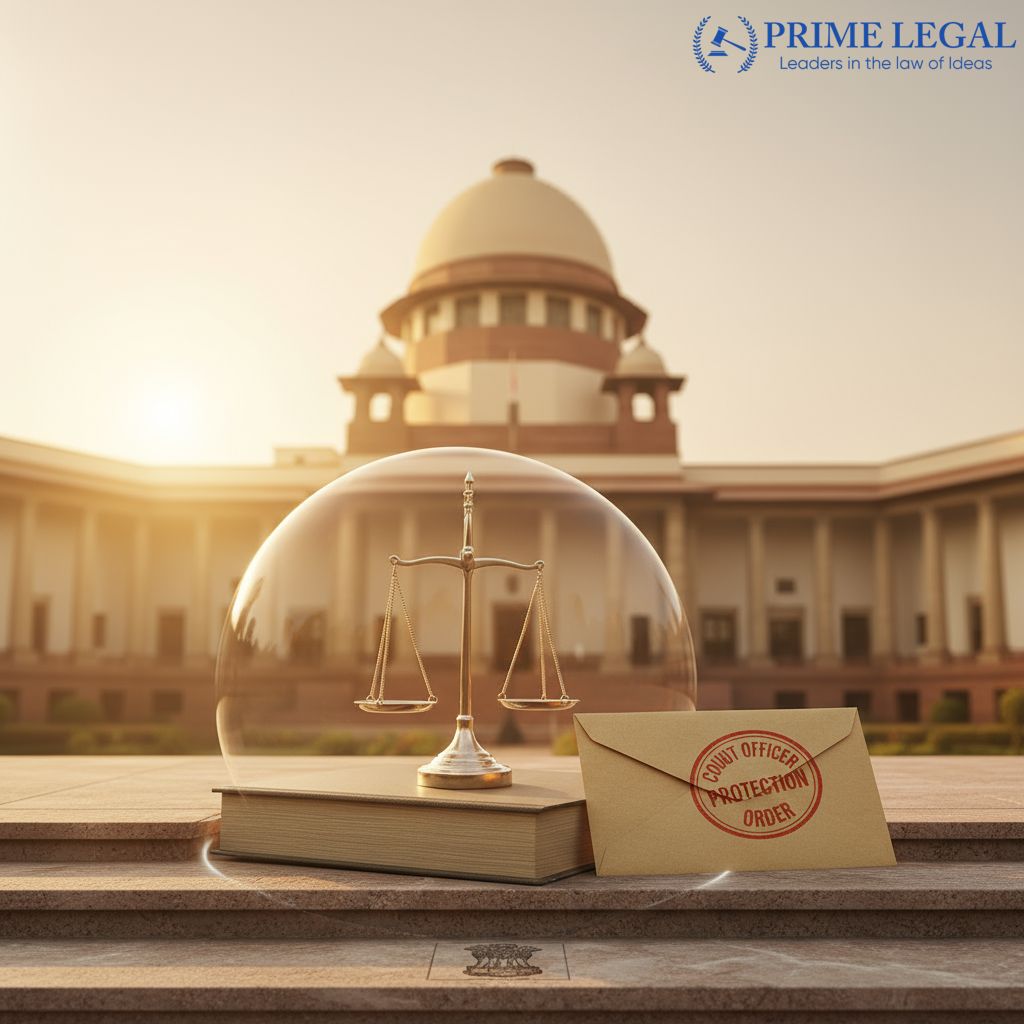INTRODUCTION AND BACKGROUND
The ongoing contempt proceedings against Nitin Bansal in the case Nitin Bansal v. The State of Delhi, SLP (Crl) No. 17468/2025 have drawn nationwide attention as it marks yet another significant judicial reaffirmation of the sanctity of court proceedings and is a huge step towards protecting the dignity of the judicial process and the authority of court-appointed officers. In brief, the case traces back to O.M.P. (I) (COMM.) 186/2024, where a petition was filed under Section 9 of the Arbitration and Conciliation Act, 1996. The Delhi High Court allowed the petition and restrained Ashok Bansal from alienating the industrial coal that belonged to M/s G&G Concrete Solutions.
Further to ensure compliance, the Court appointed a woman advocate, Ms Nandini Bali as the Local Commissioner to inspect the premises and it is during the execution of this commission, Nitin Bansal allegedly behaved in an aggressive, threatening and intimidating manner including the placing of a gun on the table in front of the Commissioner and the police officials. The Local Commissioner’s report recorded the incident, and the police subsequently seized the weapon, suspected to be unlicensed.
The matter was referred for contempt proceedings under Section 15 of the Contempt of Courts Act, 1971. The Delhi High Court in the case, Court On Its Own Motion vs Nitin Bansal, CONT.CAS.(CRL) 16/2024, held Nitin Bansal guilty of criminal contempt under Section 2(c)(iii) of the Act. The court sentenced him to one month’s simple imprisonment and a fine of ₹2,000, in addition to immediate custody. Aggrieved by this order, the contemnor approached the Supreme Court by way of Special Leave Petition.
KEY POINTS
- This case clarifies that a Local Commissioner acts as an extension of the Court for the administration of judicial process. Thereby, any attempt to threaten such a Commissioner is a direct assault on the very dignity of the judiciary. The independence of judicial officers and their representatives must be protected from any kind of threat or intimidation to ensure that justice is not merely pronounced, but also effected.
- In the instantaneous case, the actions displayed by the contemnor were deliberate and pre-planned which were done with the sole objective of preventing the lawful discharge of duty by the Local Commissioner. The act of displaying a gun during the inspection showcases the existence of mens rea and this results in penal consequences under criminal contempt.
- It is to be pointed out that the apology offered in this case was dismissed by reason of it being insincere. Both the Delhi High Court and Supreme Court observed that his submissions were not an acknowledgment of fault, but rather, it was an attempt to transfer liability onto the Local Commissioner. The judiciary emphasized that an apology in contempt proceedings must showcase genuine regret and not serve as a mere strategy to avoid liability.
- Further, after the examination of the weapon, it was found that the contemnor’s plea that the gun was a “toy” was proven false Presentation of such a misleading plea amounts to deliberate misrepresentation, and this by in itself aggravates the offence of contempt. Misrepresentation particularly in contempt proceedings, strikes at the roots of the administration of justice.
- Importantly, the case also highlights the judiciary’s evolving sensitivity towards gender and professional dignity. The Supreme Court appreciated the Commissioner for her composure, restraint and grace despite facing intimidation and threat. Any form of harassment or threat directed towards a female officer of the Court, is not merely an attack on the individual dignity but it is seen as an attack on the institutional integrity.
RECENT DEVELOPMENTS
On 5 November 2025, a Bench comprising of Justice Surya Kant, Justice Ujjal Bhuyan, and Justice Joymalya Bagchi strongly condemned the conduct of petitioner Nitin Bansal and refused to grant him interim relief. The Bench upon examination of the petition, observed that the petitioner’s plea lacked regret and instead attempted to shift the liability upon the the Local Commissioner. The Court rejected his claim that it was merely an “air gun.” This infuriated the Bench and Justice Surya Kant even questioned the very act of displaying even a toy gun before the Commissioner which showcased the clear intent to intimidate. Rejecting contentions of speech impediment or misunderstanding, the Court upheld the Commissioner’s account and directed the petitioner to surrender by 6 November 2025. The matter is listed for next hearing on 11 November 2025.
CONCLUSION
Therefore, it could be concluded that the proceedings in this case highlights the judiciary’s unwavering commitment to preserving its authority and safeguarding the dignity of those who serve it. It points out that any act of intimidation against a Court officer constitutes an attack to the rule of law. This is not only a case of contempt, but it is a case that highlight the deeper values of legal profession and sanctity of the judicial proceedings. The Supreme Court’s direction requiring the contemnor to surrender before seeking any relief was not a mere procedural step, but a reminder that the authority of the Court is absolute and that the pursuit of justice cannot be compromised by any kind of misconduct.
“PRIME LEGAL is a full-service law firm that has won a National Award and has more than 20 years of experience in an array of sectors and practice areas. Prime legal falls into the category of best law firm, best lawyer, best family lawyer, best divorce lawyer, best divorce law firm, best criminal lawyer, best criminal law firm, best consumer lawyer, best civil lawyer.”
Written by- Amyukta Rajagopal


